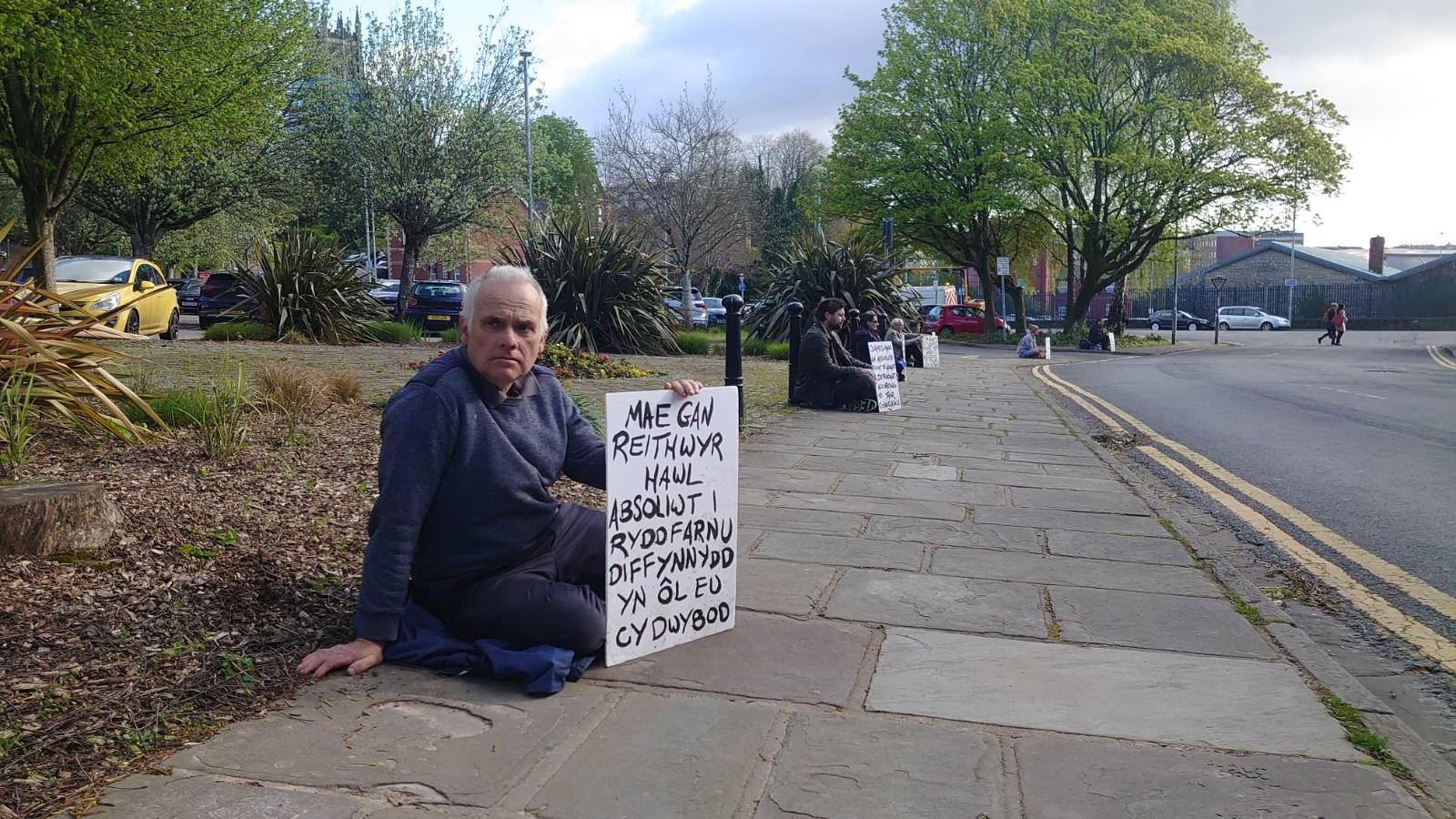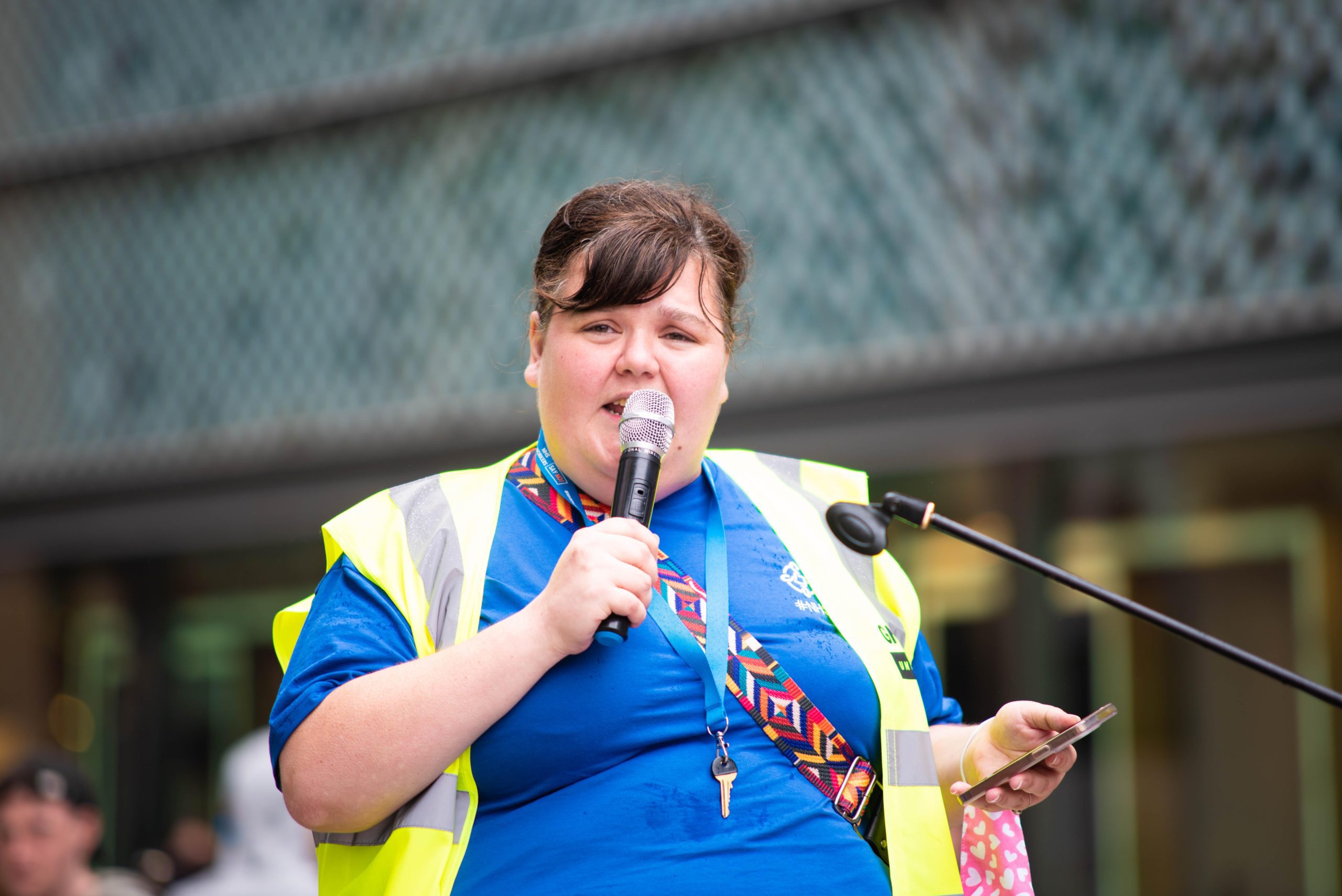
Outside Newport Crown Court, Residents Defend Juries As Conscience Acquittals Come Under Attack
On 16th April, a group of local residents sat outside Newport Crown Court as jurors entered in the morning, holding what they say has become the most contentious sign in the UK legal system.
They joined hundreds of others around England and Wales as part of the growing Defend Our Juries campaign.
The action came on the eve of the trial of Trudi Warner, a 68 year old retired social worker, which will be heard on April 18th in a permission hearing for the Attorney General’s application to commit her to prison.
The basis of the application is that Warner held up a sign outside a court displaying the well-established principle of jury equity.
Warner and the Defend Our Juries campaign aim to bring to public attention attempts to undermine the historic principle of trial by jury, particularly in the context of those taking action to expose government dishonesty and corporate greed.
The area they are most concerned about is a threat to the constitutional safeguard that juries can acquit a defendant as a matter of conscience, irrespective of a judge’s direction that there is no available defence, a principle also known as ‘jury equity’ or ‘jury nullification.’
Campaigners also want to ensure that all defendants have the opportunity to explain their actions when they are on trial, including by explaining their motivations and beliefs, something they claim has become harder to do in recent years.
The issue is of critical importance to people who may commit a criminal offence related to disruption when taking action against a private company, government body or property as a matter of conscience.
This could include an environmental protest shutting down an illegal coal mine, but is not limited to one particular issue.
The demonstrations come amid mounting public concern that political trials are being turned into show trials, after a succession of jury acquittals, including the acquittal of the Colston 4 in January 2022, which embarrassed the Government and certain corporate interests.
In the Colston case, Suella Braverman, who was Attorney General at the time, claimed that the Bristol jury had got it wrong, and brought a successful appeal to the Court of Appeal, changing the law.
Locals taking part in the Newport action yesterday held signs displaying the centuries-old principle of ‘jury equity’, i.e. the right of all jurors in British courtrooms to acquit a defendant according to their conscience and irrespective of the directions of the judge.
By displaying these signs the group sought to highlight the worrying nature of the prosecution against Trudi Warner.
They say thousands of pounds of public money has been spent pursuing a pensioner for showing a sign that is so well established that it is even on display inside the Old Bailey. The government campaign has gone as far as arresting two young women and questioning 24 others. Although tellingly, after almost a year, no charges have been brought against them.
The group hopes that united, collective action to defend the principle of jury equity will prove effective.
Just days after the Solicitor General’s announcement to prosecute Warner, 252 people gathered outside 25 crown courts across England and Wales, holding similar signs in solidarity with. None were arrested and there has been no indication of a police investigation since then. An investigation into people previously arrested for displaying posters with the same message has now been discontinued. In December last year, over 500 people gathered to display the same message at over 50 crown courts, and again none were arrested.
And in February this year, 300 signed a letter to the new Solicitor General saying “since you’re prosecuting Trudi Warner, you should prosecute us too”.
The issue of defendants being able to explain their motivations and beliefs whilst on trial is highlighted this week in a separate trial in Wales
In Caernarfon Crown Court this week, the case of the Solvay Three is being heard, following the group of Palestine Action activists occupying the roof of a factory that helped supply military drones to Israel. One of those on trial is voice.wales writer Mark Redfern.
But in a similar trial in June last year, the judge only allowed a very limited line of defence.


